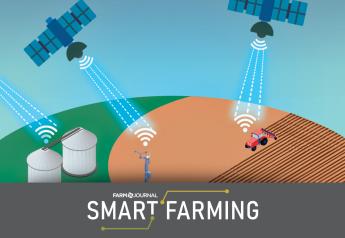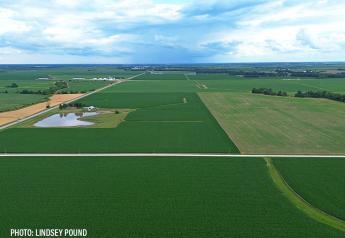3 Scouting Tips to Protect Yield Now

Scouting now will help protect yields and help prepare for harvest. Mycogen agronomists are providing scouting tips that you can act on now during the critical growth stages.
1. Root development: Planting and growing-season challenges can create a number of root development issues. Examine these three areas to determine if corn roots are compromised.
· Root architecture: Wet soils prohibit roots from extending into the soil, which can lead to standability and lodging issues later in the season. Sidewall compaction from planting in wet soils, when followed by warm, windy days, also can lead to root architecture challenges. Farmers should dig up roots to look for pancaking or flat roots.
· Root health: Farmers should split stalks to examine the crown. The early onset of crown root rot is due to excessive cool and wet soil conditions during early development. Early season diseases such as pythium and rhizoctonia can impact root to crown health. Damaged crowns typically lead to more overall plant stress and can create stalk rot issues later in the season.
· Root scarring and tunneling: In most areas, corn rootworm egg hatch occurred early in June. Farmers should dig up several roots. Larvae should be big enough to be seen on roots. Feeding damage also may be apparent as brown, pruned roots. Damaged roots hinder the plant’s ability to take up water and nutrients, which can lead to poor grain fill and lodged plants. It can also leave the plant vulnerable to additional disease pathogens.
2. Uneven emergence: Weather challenged seedlings this year, leading to uneven emergence and replant situations. Late-emerging plants compete for sun and nutrients with neighboring early emerged plants. According to Iowa State University Extension, depending upon the difference in days between early and late-emerging plants, yield loss can range from 7 percent to 23 percent. Farmers should scout fields and note the number of smaller or shorter plants in a stand. Iowa State University Extension’s website provides additional help in determining potential yield loss. Understanding yield potential can help farmers make in-season management decisions.
3. Disease management: Early-season stress can make corn plants more susceptible to disease and reduce the plant’s ability to combat stress. As farmers walk fields nearing pollination, they should look for key diseases like gray leaf spot and northern corn leaf blight and consider whether a fungicide is economical for the field’s yield potential. In low-yield potential fields, an application may not be worth the investment. As farmers scout, they should also prioritize fields by hybrids. Some hybrids are more susceptible to foliar diseases than others. For fields with hybrid susceptibility, scout first.
This is a critical point in the growing season for scouting and an optimum time to get in the field to look for issues that could potentially put a damper on harvest. Harvest first those fields where lodging or stalk quality is a concern.
For agronomic information is available here Mycogen.com/Agronomy







